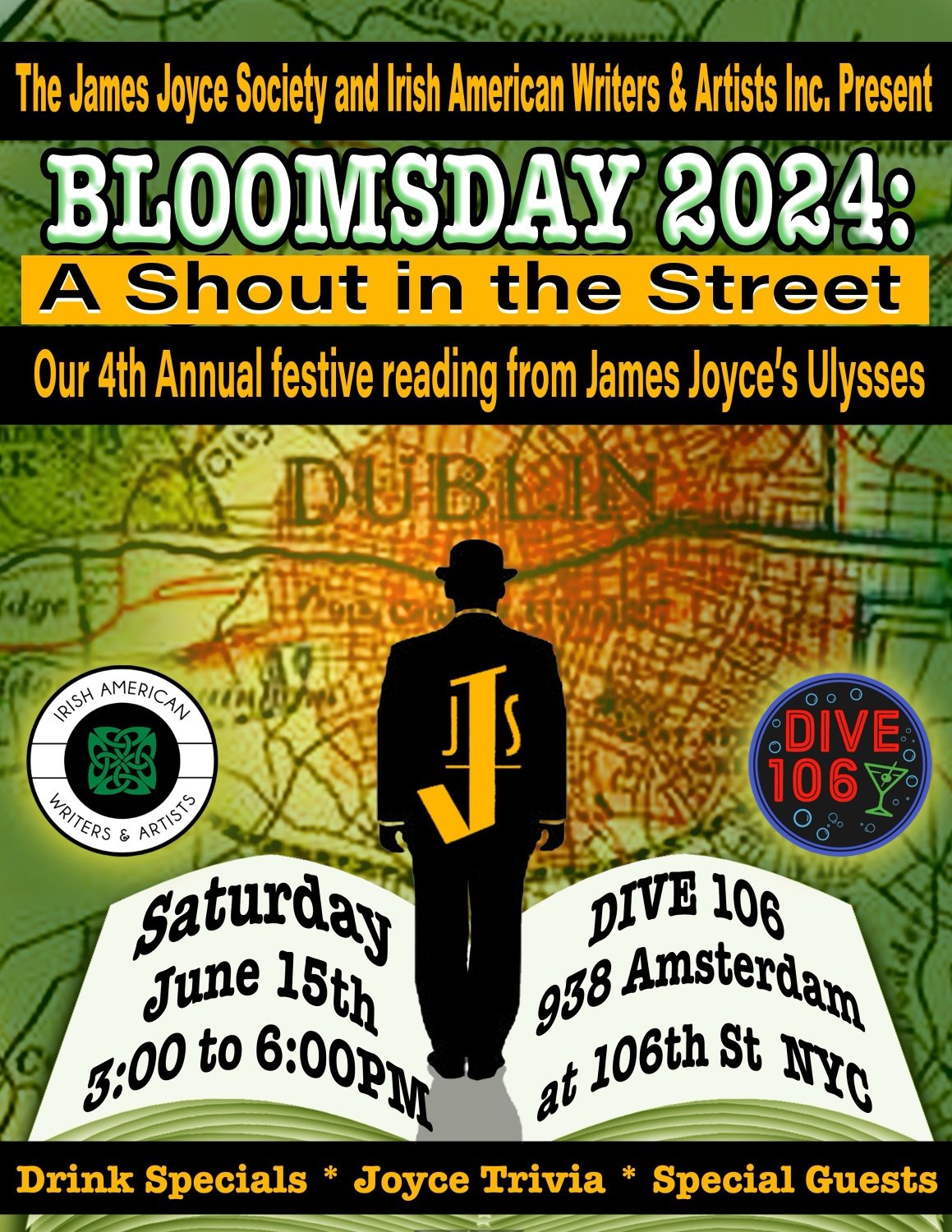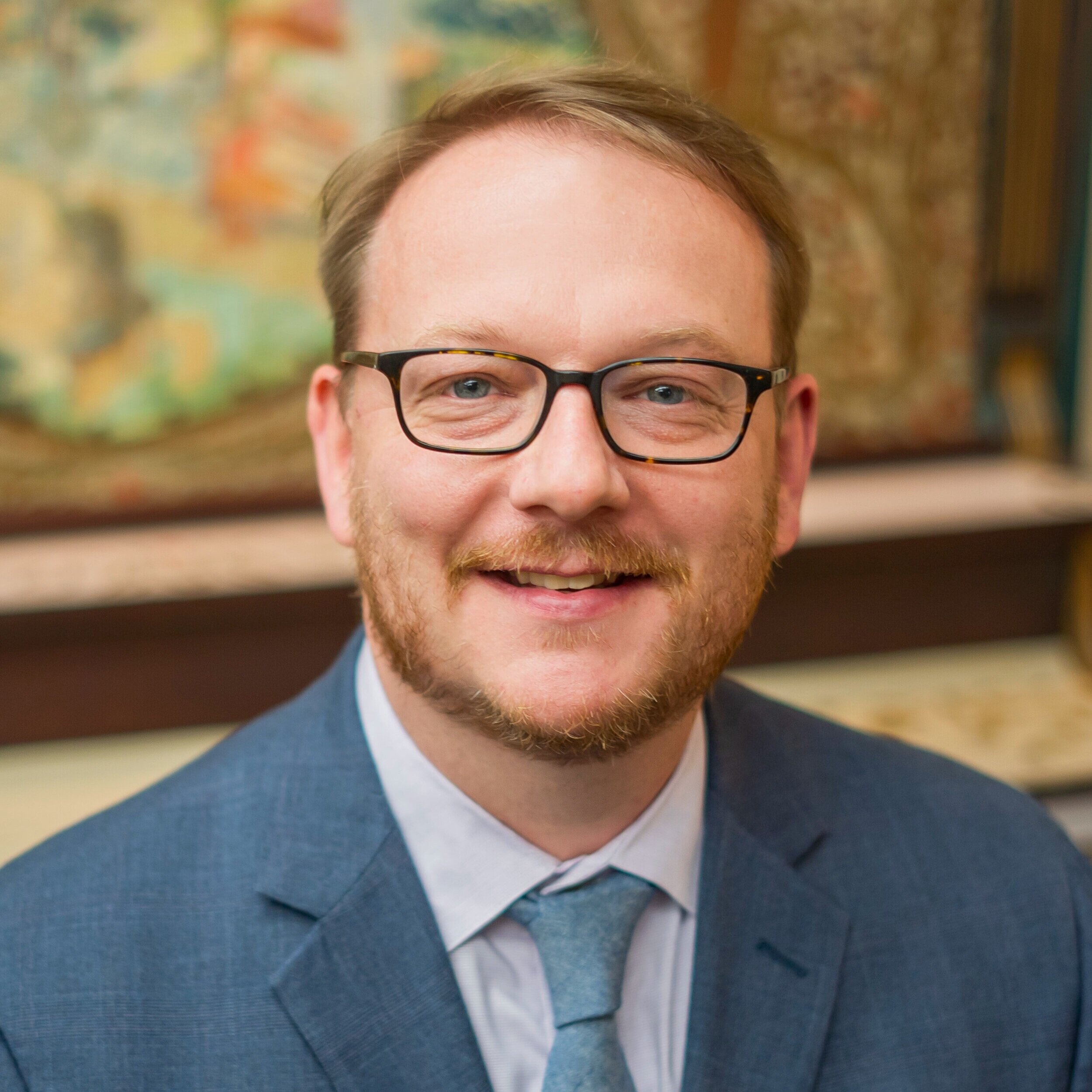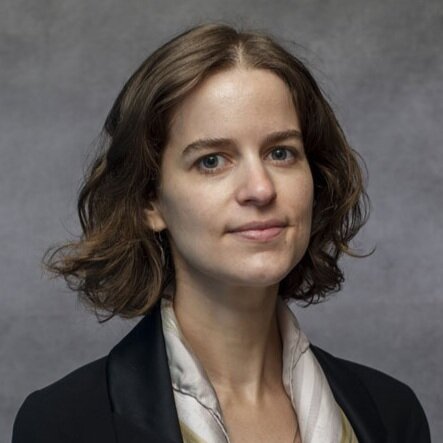The James Joyce Society requests that all non-members donate $10 to attend individual events. Except students and early-career contingent scholars, for whom it’s all free.

The James Joyce Collection at the University at Buffalo, with James Maynard, Alison Fraser, and Damien Keane
This is a remote event. RSVP and Zoom link here.
In this presentation, Associate Curator Alison Fraser and Curator James Maynard will discuss the history and holdings of the University at Buffalo James Joyce Collection and present a virtual tour of highlights. Part of the University Libraries’ Poetry Collection, the library of record for 20th- and 21st-century Anglophone poetry, the UB James Joyce Collection is the world’s largest and most comprehensive compilation of manuscripts and other materials related to the renowned Irish author. It comprises more than 10,000 pages of Joyce’s working papers, notebooks, manuscripts, photographs, correspondence, portraits, publishing records, important memorabilia, and ephemeral material, as well as Joyce’s Paris library. Supplementing the archive is a complete set of first editions including most issues and states of every book published by Joyce, translations, a large number of his magazine appearances, and virtually all significant criticism. Together, these materials thoroughly document Joyce’s artistic life and provide unmatched glimpses into his writing process and literary relationships. For Bloomsday 2021 the Poetry Collection launched a James Joyce mural in downtown Buffalo and they are currently designing a UB James Joyce Museum for which they received $10 million in New York State funding.
As Curator of the University at Buffalo (UB) Libraries Poetry Collection, James Maynard directs the UB James Joyce Collection. In 2009 he helped organize the exhibition Discovering James Joyce: The University at Buffalo Collection and edited the exhibition catalogue of the same title. He has published widely on and edited a number of collections relating to the poet Robert Duncan, including Ground Work: Before the War/In the Dark (2006), (Re:)Working the Ground: Essays on the Late Writings of Robert Duncan (2011), and Robert Duncan and the Pragmatist Sublime (2018). His edition of Robert Duncan: Collected Essays and Other Prose (2014) received the Poetry Foundation’s Pegasus Award for Poetry Criticism. His most recent publication (coedited with Judith Goldman) is Soundings in Context: Poetry's Embodiments (2024), the second volume in the University at Buffalo Robert Creeley Lectures in Poetry and Poetics series.
Alison Fraser is Associate Curator of the Poetry Collection and Curator of the Rare & Special Books Collection at UB. In 2022, she curated the exhibit “That all books might published be”: Sylvia Beach’s Ulysses as part of the Poetry Collection’s celebration of the centennial. She has edited The Collages of Helen Adam (2017) and co-edited Nice: Collected Poems by David Melnick (2023), and has published on the history of twentieth-century literary archives, teaching in special collections, and the homemade ephemeral book objects of twentieth-century poets. She is a senior fellow in the Andrew W. Mellon Society of Fellows in Critical Bibliography at Rare Book School.
Damien Keane is Associate Professor in the Department of English at the State University of New York at Buffalo. He is the author of Ireland and the Problem of Information (Penn State UP, 2014), as well as articles on radio broadcasting, intelligence monitoring, and literary recordings. He is currently working on two projects: in the shorter term, one on the afterlives of James Joyce's recordings in the LP era; and in the longer term, one that centers on record keeping and so-called grey literature.

Vicki Mahaffey, Book Launch: "The Joyce of Everyday Life"
The James Joyce Society presents:
Vicki Mahaffey, online book launch for The Joyce of Everyday Life
in conversation with Jonathan Goldman, JJS president
This is a remote event. RSVP here (required) to receive the remote link
Vicki Mahaffey is Kirkpatrick Professor of English and Gender and Women's Studies, emerita, at the University of Illinois, Urbana-Champaign, and Professor of English, emerita, at the University of Pennsylvania. A Guggenheim fellow, she has written and edited several books on Joyce, Yeats, Wilde, Modernist Literature, and Irish Literature. She is currently editing a special issue for the James Joyce Quarterly on Joyce and Women.

"Complicit Reading: Castle-Agent Readers and the 'Hostile Milieu' of Ulysses," Eric A. Lewis
Please RSVP here.
Few works of literature are as closely linked to specific physical space as Ulysses is linked to Dublin. Throughout Ulysses, named characters often stand at or walk past a clearly specified, mappable point: an intersection, address, or business. In response, the novel is mapped, guidebooks to Joyce’s Dublin are published, and Bloomsday celebrants reenact scenes at the locations where they are set. Analyses of this aspect of Ulysses often characterize Joyce or the reader as city surveyor, census taker, or local. In contrast, I consider this mappable detail in relation to the network of informants and police that appears throughout Ulysses. Contrasting the Dublin of Ulysses with the London of Virginia Woolf’s Mrs Dalloway, I argue that Joyce’s representation of Dublin and many of its residents interpellates readers into the novel’s intelligence subplot. By framing readers as complicit in this source of conflict in the novel, Ulysses models a decolonial method of reader manipulation and (dis)identification.
Eric A. Lewis is a lecturer in the Department of English at Georgia State University. His research focuses on readers' relationships with characters in twentieth- and twenty-first-century Global Anglophone fiction, especially out of Ireland and South Africa. His work has been published in Interventions: The International Journal of Postcolonial Studies and the Canadian Journal of Irish Studies. His book manuscript, Complicit Reading, argues that postcolonial novels use a variety of narrative techniques to complicate reader-character relationships and frame readers as complicit in conflicts in the novel and in the novel's real historical context. He also cohosts the Ulysses discussion podcast tipsyturvy Ulysses with Shinjini Chattopadhyay and Wendy Truran.



Alison Armstrong: "Joyce in transition: the birth of ALP"
Alison Armstrong’s talk will explore Jolas’s transition magazine as a modernist vehicle for experiments with language and in the other arts. Joyce’s “Work in Progress” would become Finnegans Wake and was arguably the most important and interesting of all the linguistic experiments.
Alison Armstrong is a writer and visual artist. Her book-length publications include the literary cookbook, The Joyce of Cooking (Station Hill 1986) and “The Herne’s Egg” by W.B. Yeats: The Manuscript Materials (Cornell UP 1993), as well as works of fiction, memoir, and criticism. Her criticism and reviews have appeared in the Irish Literary Supplement, the James Joyce Broadsheet, and American Arts Quarterly, among other venues. She is currently developing a series of large pastel drawings of prehistoric stones found at sites in Ireland, including the Boyne Valley.

Mary Burke, "Mixed: Race and Language in Ireland from Joyce to Ó Cadhain"
The James Joyce Society announces its annual Joyce birthday event at the Morgan Library and Museum featuring Mary Burke
Free for Joyce Society and Morgan Library members. Joyce Society members and guests, RSVP (required) here: https://forms.gle/r5FibyPFqcnuynMV8
Long excluded from Ireland’s internationally recognized modernist canon, Máirtín Ó Cadhain’s 1949 novel, Cré na Cille (usually translated as Graveyard Soil) is a late modernist western seaboard rejoinder to Ulysses in the Irish (Gaelic) language. Cré na Cille is set in Connemara, fetishized since Joyce’s lifetime as the linguistically and racially “pure” western heart of Gaelic Ireland. Joyce’s “Ireland: Island of Saints and Sages” inadvertently implies that the avant-garde was alien to a native language that was increasingly being hitched to the fantasy of a culturally, racially, and linguistically sealed West. However, Cré na Cille’s neologisms, French and English loan words, and mixed-race returned emigrant Connemara residents acknowledge the exchanges that arose from Ireland’s history of emigration and Empire. Altogether, Ó Cadhain continues the debate initiated by Joyce’s creation of a Jewish Irishman, extending it to prophetically ask if Irish culture can create imaginative and linguistic room - in either of its official languages - for Irish citizens of minority identity. This talk will close by considering issues of race, immigration, and the teaching and speaking of the Irish language in contemporary Ireland and Irish America.
Mary Burke, Professor of English at UConn, is the author of Race, Politics, and Irish America: A Gothic History (2023) as well as a cultural history of Irish Travellers (both Oxford University Press). She collaborated with Tramp Press on the 2022 reissue of Traveller-Romany Juanita Casey’s cult novel, The Horse of Selene. Her work has placed with JJQ, NPR, the Irish Times, Irish national broadcaster RTÉ, and Faber. A former University of Notre Dame NEH Irish Fellow, she was a 2022 LRH Fellow at her alma mater, Trinity College Dublin.
Our calendar of Joyce-related events across New York City:
Want to add an event to our Joyce Studies in NYC calendar?
Email us at jamesjoycesocietyny@gmail.com.
Events Archive
-
2026
- Mar 27, 2026 Lunchtime Launch: Chris GoGwilt, Keri Walsh, and Shinjini Chattopadhyay, "Joyce Studies Annual, Special Issue" Mar 27, 2026
- Mar 6, 2026 Lunchtime Book Launch: New Biographies of Bennett Cerf (by Gayle Feldman) and Margaret Anderson (by Adam Morgan) Mar 6, 2026
- Feb 2, 2026 Adapting Ulysses: Interview with John Collins and Scott Shepherd from Elevator Repair Service Feb 2, 2026
-
2025
- Dec 12, 2025 Lunchtime Book Launch: Barry Devine and Ellen Scheible: "Teaching James Joyce in the Twenty-First Century" Dec 12, 2025
- Oct 8, 2025 Casey Drosehn Gough: "Joycean Saínz: Ulysses, Finnegans Wake, and Mexican History in the Novels of Gustavo Saínz" Oct 8, 2025
- Sep 17, 2025 Julie McCormick Weng: “James Joyce’s Encounter with Sexual Harassment” Sep 17, 2025
- May 1, 2025 "Anti-Semitism and Blackface America as Metaphor in James Joyce's Ulysses," Amadi Ozier May 1, 2025
- Mar 17, 2025 Staged Reading of Exiles, by Elevator Repair Service Mar 17, 2025
- Mar 4, 2025 “Guilt and Finnegans Wake: From Original Sin to the Irredeemable Body,” Talia Abu (Book Launch) Mar 4, 2025
- Feb 3, 2025 "Ulysses: A Design History," Glenn Johnston Feb 3, 2025
-
2024
- Dec 10, 2024 The James Joyce Collection at the University at Buffalo, with James Maynard, Alison Fraser, and Damien Keane Dec 10, 2024
- Nov 12, 2024 Vicki Mahaffey, Book Launch: "The Joyce of Everyday Life" Nov 12, 2024
- Sep 12, 2024 "Complicit Reading: Castle-Agent Readers and the 'Hostile Milieu' of Ulysses," Eric A. Lewis Sep 12, 2024
- Jun 16, 2024 Bloomsday: Portals of Discovery Jun 16, 2024
- Jun 15, 2024 Bloomsday 2024: A Shout in the Street Jun 15, 2024
- May 22, 2024 Alison Armstrong: "Joyce in transition: the birth of ALP" May 22, 2024
- Feb 5, 2024 Mary Burke, "Mixed: Race and Language in Ireland from Joyce to Ó Cadhain" Feb 5, 2024
-
2023
- Oct 25, 2023 "Close Readings, Genetic Readings, Decolonial Readings of Ulysses" Shinjini Chattopadhyay Oct 25, 2023
- Oct 5, 2023 Joyce and New York City Walking Tour, Part Two: Uptown!, Glenn Johnston Oct 5, 2023
- Sep 21, 2023 “What’s Love Got To Do With It? The Joycean Anecdote and Femme-Queer Modernist Counterpublics,” Margot Backus Sep 21, 2023
- Sep 15, 2023 Making Joyce Studies Safe for All, roundtable and open forum (remote) (RSVP necessary) Sep 15, 2023
- Jun 16, 2023 The JJS Bloomsday Celebration with IAWA–featuring Elevator Repair Service Jun 16, 2023
- Jun 1, 2023 Joyce and New York City: Walking Tour led by JJS Treasurer, Glenn Johnston (registration FULL) Jun 1, 2023
- May 16, 2023 Fargnoli/Gillespie, “An Introduction to an Introduction: ‘Reading James Joyce’ ” plus: “Tribute to Nicholas Fargnoli” May 16, 2023
- Mar 15, 2023 "Larsen’s Harlem, Joyce’s Dublin: Notes on Racial Legibility," Zoë Henry Mar 15, 2023
- Feb 2, 2023 "Friendship and the challenges of biographical writing: the Joyces and the Colums," Margaret Kelleher Feb 2, 2023
-
2022
- Dec 9, 2022 “Finding Nora,” Nuala O’Connor Dec 9, 2022
- Oct 18, 2022 “Book Talk: Christian Heresy, James Joyce, and the Modernist Literary Imagination: Reinventing the Word,” Gregory Erickson Oct 18, 2022
- Sep 23, 2022 “‘Their syphilisation you mean’: Irish Modernism and the Politics of Venereal Disease,” Lloyd (Meadhbh) Houston Sep 23, 2022
- May 19, 2022 "Ulysses: A Pisgah View, "Paul Muldoon May 19, 2022
- Apr 8, 2022 “What's in a Name? Ulysses, Nationalisms, and Wars,” Tekla Mecsnóber, University of Groningen Apr 8, 2022
- Mar 25, 2022 Celebrating Michael Groden: A Public Tribute Mar 25, 2022
- Feb 8, 2022 – Jun 7, 2022 New York Ulysses Book Club (weekly) Feb 8, 2022 – Jun 7, 2022
- Feb 4, 2022 Ulysses Centenary & 75th JJS Anniversary II: Robert Spoo & Kerri Maher (RSVP required) Feb 4, 2022
- Feb 2, 2022 Ulysses Centenary & 75th JJS Anniversary I: Clare Hutton & Jonathan Goldman Feb 2, 2022
-
2021
- Nov 18, 2021 “Introduction to the University at Buffalo Poetry James Joyce Collection,” James Maynard & Alison Fraser, SUNY Buffalo Nov 18, 2021
- Sep 24, 2021 “James Joyce and Watch Technology,” Katherine Ebury, University of Sheffield Sep 24, 2021







